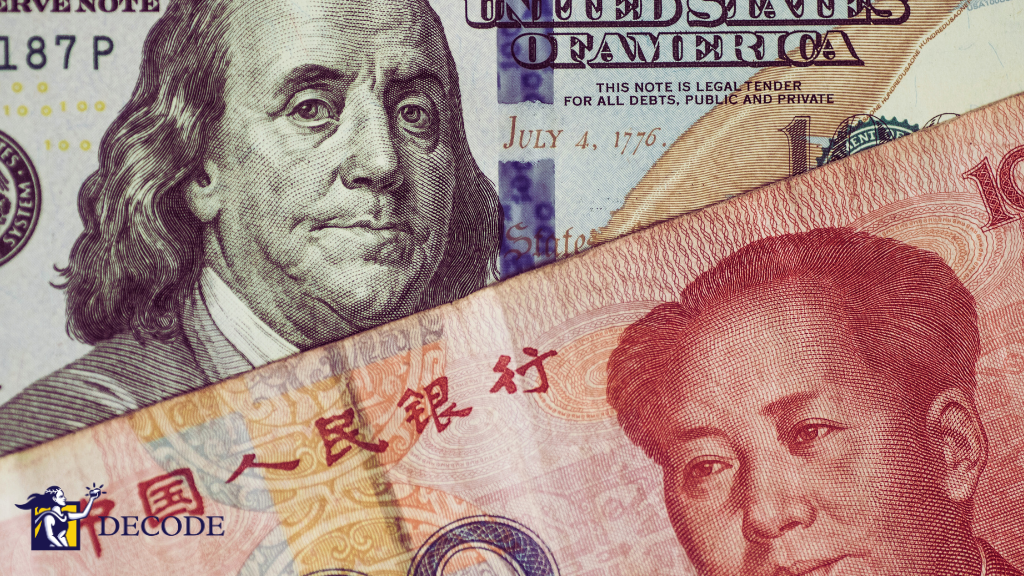
Alibaba’s $5 Billion Bond Issuance: Key Highlights
Alibaba Group has unveiled plans to raise $5 billion through a dual-currency bond issuance, a move that underscores its intent to tap into global financial markets. This issuance aims to appeal to a diverse range of investors by splitting the bonds between U.S. dollars (USD) and offshore Chinese yuan (CNY).
The USD-denominated bonds will feature maturities of 5.5, 10.5, and 30 years, while the offshore yuan bonds will mature in 3.5, 5, 10, and 20 years. Alibaba plans to use the funds for key corporate initiatives such as refinancing existing debt and executing share buybacks, showcasing its confidence in long-term financial stability and growth potential.
Impact on USD/CNY Exchange Rates and Offshore Yuan Bonds
The dual-currency nature of Alibaba’s bond issuance has significant implications for currency markets, especially for the USD/CNY exchange rate and the offshore yuan bond market.
The issuance is expected to drive up demand for both USD and CNY, which could influence the USD/CNY exchange rate. Additionally, hedging activities related to this bond deal might cause fluctuations in forex markets.
Alibaba’s decision to include offshore yuan bonds also strengthens the yuan’s international presence. This could encourage more investors to explore yuan-denominated assets, furthering China’s ambition to internationalize its currency.
Opportunities for Fixed-Income Investors
Alibaba’s bond issuance offers several benefits for income-focused investors looking for diversification.
With competitive yields anticipated, these bonds are likely to attract investors seeking steady returns. The dual-currency structure allows for exposure to both USD and CNY, offering diversification across two significant currencies.
For investors who prefer less risk than Alibaba’s equity, these bonds provide a stable alternative to participate in the company’s growth, particularly in its dominant e-commerce and cloud computing sectors.
Risks Associated with Increased Debt and Currency Volatility
While the bond deal presents promising opportunities, investors should be mindful of the risks involved.
Adding $5 billion in debt raises questions about Alibaba’s leverage, especially if growth slows or regulatory pressures intensify. A higher debt load could create financial strain in challenging market conditions.
Investors should also consider the impact of currency fluctuations. Changes in USD and CNY exchange rates, particularly in today’s volatile global economy, could significantly affect bond yields and returns.
Finally, Alibaba remains under the watchful eye of Chinese regulators. Any unfavorable rulings or penalties could damage its financial health and undermine investor confidence in its bonds.
Regulatory Scrutiny and Market Sentiment
Market sentiment will play a pivotal role in determining how Alibaba’s bond issuance is received.
Access to global debt markets signals Alibaba’s strength, but increased debt could make some investors cautious. Credit default swap (CDS) spreads on Alibaba may narrow if sentiment remains positive or widen if the issuance is perceived as risky.
Regulatory scrutiny in China continues to be a critical factor. Any adverse regulatory actions could weigh on investor confidence, impacting both Alibaba’s stock and bond performance.
Conclusion: What This Means for Global Markets
Alibaba’s $5 billion dual-currency bond issuance represents a strategic effort to secure funding while appealing to a global investor base. For fixed-income investors, it offers competitive yields and the opportunity to diversify across currencies.
However, the deal also introduces risks tied to increased debt, currency volatility, and regulatory challenges. Monitoring the implications for USD/CNY exchange rates, offshore yuan bonds, and investor sentiment will be essential.
